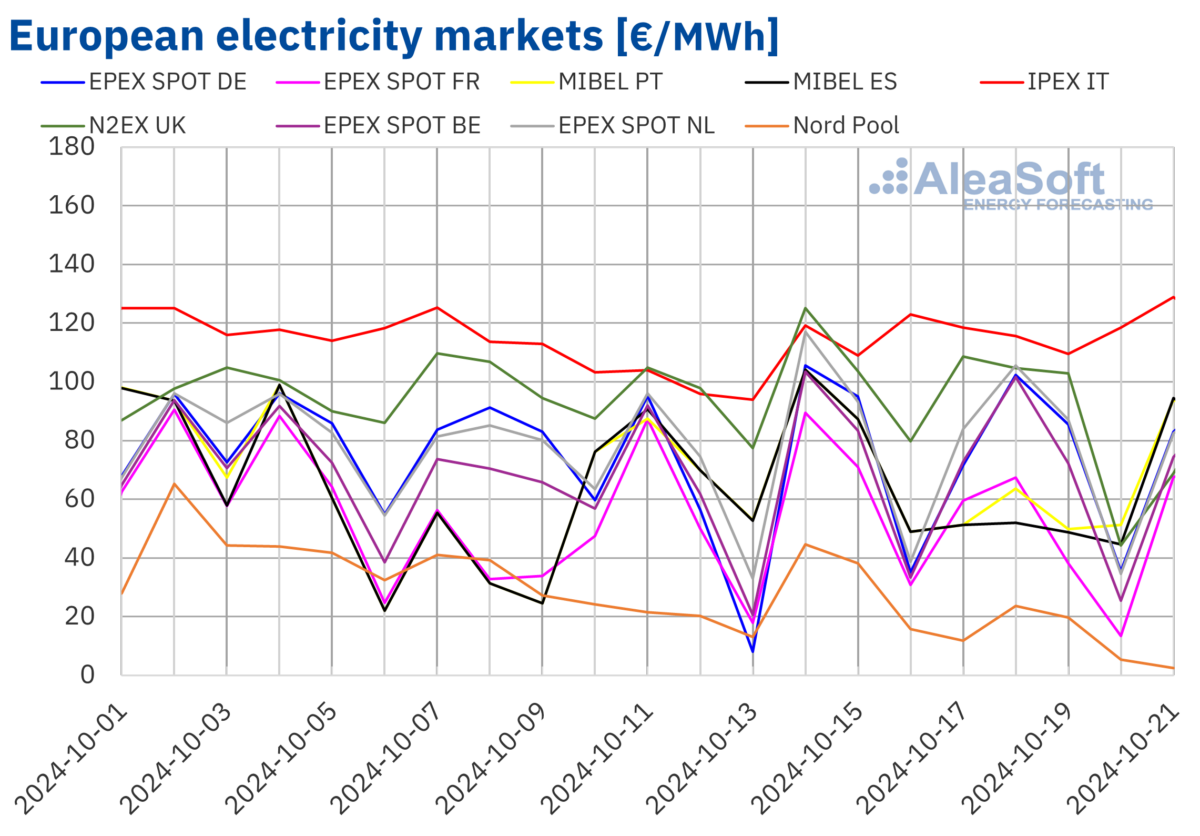Most major European electricity markets experienced an increase in average electricity prices last week, according to analysis by AleaSoft Energy Forecasting.
Compared to the week prior, AleaSoft found weekly average prices increased in the Belgian, Dutch, French, German, Italian, Portuguese and Spanish markets. The exceptions were the British and Nordic markets, where average weekly prices fell by 1.4% and 15%.
AleaSoft said a drop in solar and wind energy production alongside higher electricity demand across most markets contributed to the rising prices.
Despite the increases, weekly averages stayed below €81 ($87.34)/MWh in all markets, bar the British and Italian markets, which continued to have the highest prices, at €95.55/MWh and €116.16 MWh. The Nordic market continued to register the lowest weekly average at €22.73/MWh.
All analyzed markets, except for the Italian and Portuguese, registered negative electricity prices on Oct. 20, which AleaSoft attributed to the usual decrease in demand recorded on Sundays, alongside high levels of renewable energy production in some markets on this day. The Belgian, Dutch, French and German markets reached the lowest price of -€2.01/MWh on the afternoon of Oct. 20.
AleaSoft is predicting that electricity prices will continue to increase during the fourth week of October, influenced by a continued decline in wind energy production and increased demand in most markets.
Last week, solar energy production fell week on week in France, Germany and Italy, but increased across Portugal and Spain. AleaSoft said it expects this week will bring an increase in solar energy production in Germany and Spain, but an ongoing decline in Italy.
This content is protected by copyright and may not be reused. If you want to cooperate with us and would like to reuse some of our content, please contact: editors@pv-magazine.com.




By submitting this form you agree to pv magazine using your data for the purposes of publishing your comment.
Your personal data will only be disclosed or otherwise transmitted to third parties for the purposes of spam filtering or if this is necessary for technical maintenance of the website. Any other transfer to third parties will not take place unless this is justified on the basis of applicable data protection regulations or if pv magazine is legally obliged to do so.
You may revoke this consent at any time with effect for the future, in which case your personal data will be deleted immediately. Otherwise, your data will be deleted if pv magazine has processed your request or the purpose of data storage is fulfilled.
Further information on data privacy can be found in our Data Protection Policy.